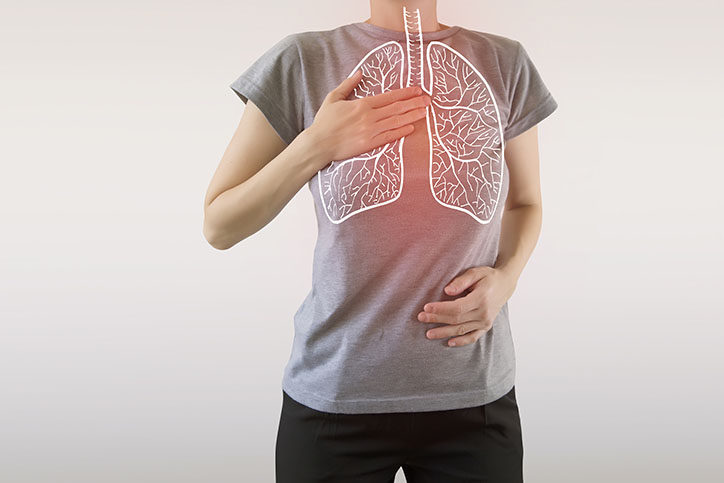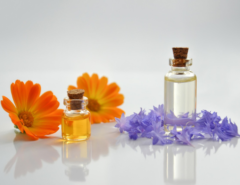At the Maryland Poison Center (MPC), we talk a lot about poisons that are swallowed. But did you know we manage other types of poison exposures, too? Let’s look at other ways a person can be exposed to a poison, such as inhalation exposures. These exposures usually involve breathing in a gas, vapor, or other substance through the nose or mouth.
Inhalation exposures can happen in the home, at work, or in public areas. The MPC manages approximately 1,900 such exposures each year. Below, we review what to do if an inhalation exposure happens, as well as some common products we receive calls about.
First Aid for Inhalation Exposures
If you or someone you know inhales a product, follow these first aid steps:
- Get the person to fresh air to avoid breathing in the fumes.
- If possible, open doors and windows and turn on a fan.
- Call the Maryland Poison Center at 1-800-222-1222.
Common Substances Linked to Skin Exposures
Fumes, Gases, and Vapors
Carbon Monoxide (CO)
CO is a colorless and odorless gas. It has the nickname “silent killer”, which is scary but appropriate considering the dangers CO poisoning bring. The signs and symptoms of CO poisoning mimic the flu- dizziness, headache, and vomiting. More information can be found on our previously published Carbon Monoxide blog. We also have a one-page information sheet on CO available on our website.
Chlorine Gas
Chlorine gas can come from swimming pool chlorine or mixing bleach with cleaning products. It is important to follow directions on pool chlorine products exactly as written. If the product has been sitting for a while, opening the lid quickly can cause the product to come out quickly. Be sure to use and open these products in a well-ventilated area or outside.
Using bleach and other cleaning products together can create chlorine gas if the products are used incorrectly. When using multiple products to clean, apply one product, rinse it away completely, then use the next product.
Chloramine Gas
Chloramine gas is created when bleach and ammonia are mixed together. Do not use these products together. If you need to use both products on the same area, use one product, rinse it away completely, then use the next product.
Methane and Natural Gas
Methane is found in natural gas. If you have gas appliances in your home or at work, they may leak natural gas when not working correctly. Methane gas can also be found on farms. Livestock waste can produce this gas, as well as when waste is kept for a long period of time in a landfill.
Household Cleaners
The smell from using household cleaning products can sometimes be overwhelming or unpleasant. When cleaning, do not close off the area where you are working. Open a door and window and turn on a fan. If the smell becomes too much, get some fresh air and return to the area later. As mentioned above, there are some products that when mixed cause harmful gases. When using more than one cleaning product, rinse the first product away completely before using a second product.
Stimulants and Street Drugs
Some stimulants and street drugs are used by inhaling the product. This includes heroin, cocaine, and marijuana. If someone has inhaled a stimulant or street drug and is not breathing, unconscious, or having a seizure, call 911 right away. If someone is experiencing unexpected effects from a stimulant or street drug exposure, call the MPC right away at 1-800-222-1222.
Pesticides
When spraying pesticides, the smell can become overwhelming. If you are using a product indoors, open a door or window or turn on a fan if the smell becomes overwhelming. If using a product outside and the smell becomes overwhelming, move to a different area for fresh air. It is important to change your clothes after spraying pesticides. Residue on your clothing can lead to an ongoing exposure.
Hydrocarbons
Freon and gasoline are two types of hydrocarbons. Freon is a gas used in air conditioners. When handling freon products, follow the directions exactly as stated on the products. Gasoline is a common product people use every day. The smell of gasoline can become overwhelming. Gasoline spills should be rinsed thoroughly with water right away. If gasoline is splashed or spilled on clothing, you should change your clothes to prevent continued exposure to the fumes.
Foreign Bodies
A foreign body that is placed in or up the nose is technically considered an inhaled product at the MPC. Children love to put things in their noses, and sometimes they can get stuck!
If you suspect that you or someone else has experienced an inhalation exposure, call the poison center after performing the above first aid steps. The MPC is open 24 hours a day, seven days a week, 365 days a year. The call is free and confidential and will be handled by. You can always reach a specially trained pharmacist or nurse. Call us at 1-800-222-1222.





Leave a Reply